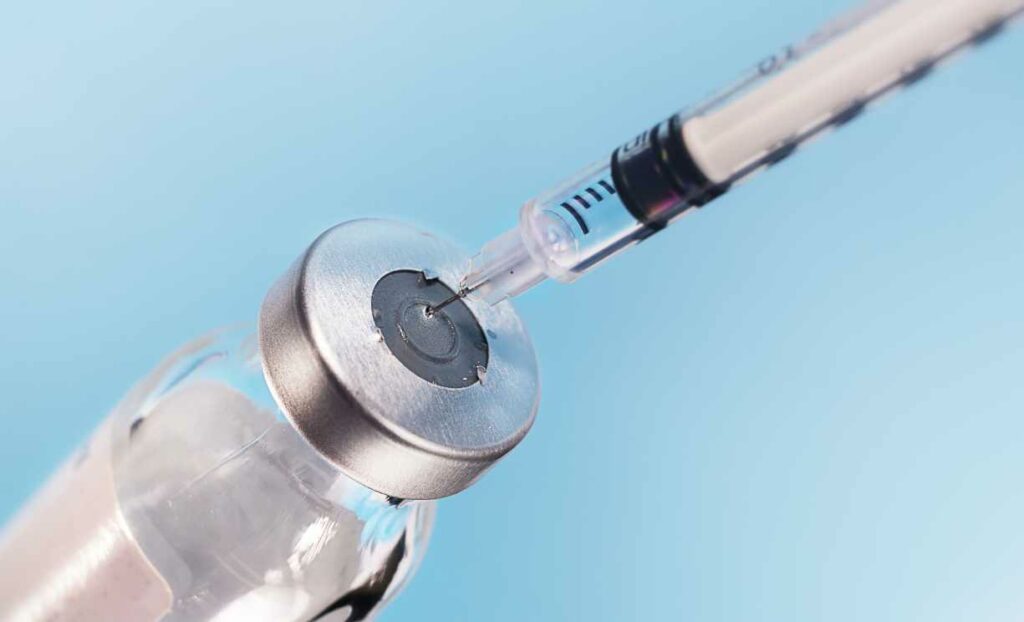Polycystic Ovary Syndrome (PCOS) is a common hormonal disorder that affects individuals with ovaries, often leading to irregular periods, cystic ovaries, and elevated levels of androgens. While lifestyle modifications and medications are commonly used to manage PCOS, some cases may require additional interventions. In this blog, we’ll explore the role of PCOS injections in the treatment landscape, providing insights into their use, benefits, and considerations for individuals dealing with this condition.
Contents
What Are PCOS Injections?
PCOS injections are a type of medical treatment designed to help individuals with Polycystic Ovary Syndrome (PCOS) manage specific aspects of their condition. These injections can include different types, such as gonadotropins to stimulate ovary function, insulin-sensitizing agents like Metformin to address insulin resistance, and hormonal therapies containing estrogen and progestin to regulate menstrual cycles.
The goal of these injections is to bring about positive changes in the hormonal imbalances associated with PCOS. For example, they may help regulate menstrual cycles, support fertility by stimulating ovulation, and manage symptoms related to insulin resistance. It’s important to note that the use of PCOS injections should be carefully discussed and planned with a healthcare professional, considering individual symptoms and health goals for a personalized and effective treatment approach.
Considerations and Consultation
Considerations and consultation are crucial aspects when it comes to PCOS injections. Before starting any treatment, it’s important to have a thorough discussion with a healthcare professional. Here are key points to consider:
- Individualized Treatment Plans: PCOS varies widely among individuals, and there is no one-size-fits-all approach. A healthcare provider will assess your specific symptoms, overall health, and reproductive goals to create a personalized treatment plan.
- Understanding Potential Side Effects: Like any medical intervention, PCOS injections may have side effects. These can vary depending on the type of injection and individual responses. It’s essential to discuss potential side effects with your healthcare provider and be aware of what to expect.
- Regular Monitoring and Follow-Up: Treatment effectiveness needs to be regularly assessed. Your healthcare provider will monitor your response to the injections and may make adjustments to the treatment plan as needed. Regular check-ups ensure that the treatment is on track and can be modified if necessary.
- Fertility Goals and Family Planning: If fertility is a concern, discuss your goals with your healthcare provider. Some injections aim to stimulate ovulation and improve fertility, so aligning the treatment plan with your family planning objectives is important.
- Overall Health Considerations: PCOS injections may interact with other medications or impact pre-existing health conditions. It’s crucial to provide your healthcare provider with a comprehensive medical history to ensure a safe and effective treatment approach.
- Patient Education: Understanding the purpose of each injection, how it works, and what to expect is essential. Your healthcare provider should educate you on the details of your treatment plan, empowering you to make informed decisions.
- Lifestyle Considerations: Lifestyle modifications, including diet and exercise, often complement medical interventions for PCOS. Discussing and implementing these changes in conjunction with injections can enhance overall treatment outcomes.
What Can PCOS Injection Help With?
PCOS injections can help address various aspects of Polycystic Ovary Syndrome (PCOS) and its associated symptoms. Here are specific areas where PCOS injections may be beneficial:
- Regulating Menstrual Cycles: PCOS often causes irregular or absent menstrual cycles. Hormonal injections, including those containing estrogen and progestin, can help regulate and normalize menstrual patterns.
- Stimulating Ovulation: For individuals with PCOS who struggle with fertility due to irregular ovulation, gonadotropin injections can stimulate the ovaries and promote the development of follicles, increasing the chances of ovulation.
- Managing Insulin Resistance: Some individuals with PCOS experience insulin resistance, leading to elevated blood sugar levels and weight gain. Insulin-sensitizing agents like Metformin, delivered through injections, may help manage insulin resistance and improve metabolic health.
- Reducing Androgen Levels: Elevated levels of androgens (male hormones) are common in PCOS and contribute to symptoms like acne and excess hair growth. Hormonal therapies, including anti-androgen injections, may help reduce androgen levels and alleviate these symptoms.
- Addressing Endometrial Issues: PCOS is associated with an increased risk of endometrial hyperplasia, a condition that may lead to uterine cancer. Hormonal injections can help manage endometrial health by promoting regular shedding of the uterine lining.
- Alleviating Menopausal Symptoms: In certain cases, individuals with PCOS may experience symptoms similar to those of menopause. Hormonal therapies delivered through injections can help alleviate these symptoms and improve overall quality of life.






You have observed very interesting points! ps nice internet site.Blog range
Rattling excellent information can be found on website.Blog monetyze